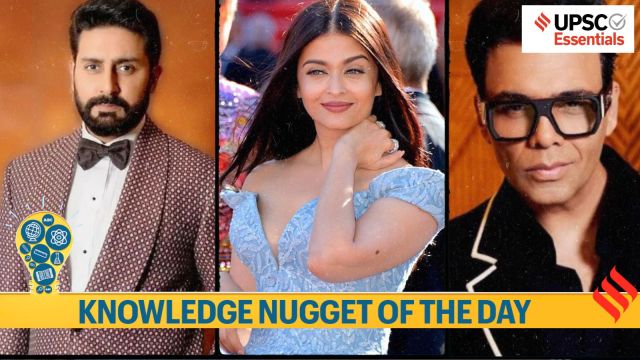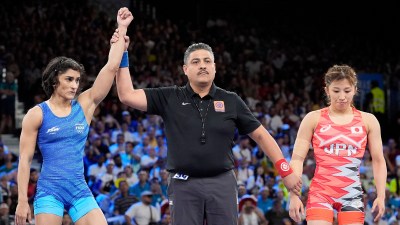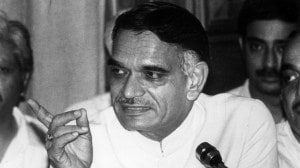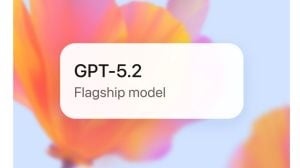
Last week, Aishwarya Rai Bachchan and Abhishek Bachchan were given protection by the court. In this context, let’s know about personality rights.
Key Takeaways :
1. Personality rights or publicity rights are a subset of “celebrity rights” claimed by celebrities. The name, voice, signature, images, or any other feature easily identified by the public as markers of a celebrity’s personality lie at the heart of personality rights. These could include poses, mannerisms, or any other distinct aspect of their public persona.
2. Celebrities sometimes register aspects of their personalities as trademarks to use them commercially. For example, Usain Bolt’s “bolting” or lightning pose is a registered trademark and Footballer Gareth Bale has trademarked the heart sign he makes with his hands while celebrating a goal.
3. The idea behind such rights is that only the creator or owner of the unique features can gain commercial benefit from them.
4. On May 15 last year, the Delhi High Court protected the personality and publicity rights of Jackie Shroff while restraining various e-commerce stores, AI chatbots, etc., from misusing the actor’s name, image, voice, and likeness without his consent.
Story continues below this ad
5. The court observed that attributes “over which the plaintiff exercises exclusive control constitute his ‘personality rights’ and ‘publicity rights’. The unauthorised use of these characteristics for commercial purposes not only infringes upon these rights but also dilutes the brand equity painstakingly built by the plaintiff over the years”.
6. Notably, personality rights or their protection are not defined in Indian law, and are usually seen under the rights to privacy and property.
7. Concepts in intellectual property rights cases, such as ‘passing off’ and ‘deception’, are usually applied in such cases while ascertaining if protection is warranted.
Right to Privacy
1. In August, 2017, a nine-judge bench of the Supreme Court of India in K. Puttaswamy v Union of India Case ruled unanimously that “the right to privacy is protected as an intrinsic part of the right to life and personal liberty under Article 21 and as a part of the freedoms guaranteed by Part III of the Constitution”.
Story continues below this ad
2. Notably, Article 21 of Constitution of India guarantees the fundamental right to protection of life and personal liberty. It ensures certain safeguards against arbitrary deprivation of life and liberty
3. The Right to Privacy has emerged at the center of various controversies in recent years, yet its explicit definition remains unclear in many cases.
BEYOND THE NUGGET: Performer’s Rights
1. In 2023, the Bombay High Court ruled that FM radio channels cannot use copyrighted music without paying royalties to composers and lyricists.
2. Section 38 of the Copyright Act, 1957, as amended in 2012, recognises “Performer’s Rights” of the Singer of a commercially recorded song for 50 years from the “beginning of the calendar year next following the year in which the performance is made”. During this period, the performance, or “a substantial part thereof”, cannot be recorded, reproduced, broadcast or communicated without the Performer’s consent.
Story continues below this ad
3. Performers (which includes Singers) have the Right to Receive Royalty (R3) in case their performances are commercially utilised. While a Singer can sign over the rights to a song to a producer/third party, R3 for the song cannot be given over. This means that once a Singer has recorded an original song, everyone except the producer/copyright holder needs to get permission and pay royalty to play/perform it in public.
4. The objective of the amendment was to protect artists. For example, if the copyright of a song is licensed, it would not just be the producer who would get a royalty but the singer and lyricist would also be entitled to a share.
5. Under Section 39 of the amended Copyright Act, the Performer’s Right is not infringed only in cases of private use, teaching and research.
Post Read Question
Right to Privacy is protected as an intrinsic part of Right to Life and Personal Liberty. Which of the following in the Constitution of India correctly and appropriately imply the above statement? (UPSC CSE 2018)
Story continues below this ad
(a) Article 14 and the provisions under the 42nd Amendment to the Constitution.
(b) Article 17 and the Directive Principles of State Policy in Part IV.
(c) Article 21 and the freedoms guaranteed in Part III.
(d) Article 24 and the provisions under the 44th Amendment to the Constitution.
(Sources: Scarlett Johansson vs OpenAI: What are personality rights and how are they protected?, Knowledge nugget of the day: Copyright Act — the focus of Dhanush-Nayanthara dispute)
Story continues below this ad
Subscribe to our UPSC newsletter. Stay updated with the latest UPSC articles by joining our Telegram channel – Indian Express UPSC Hub, and follow us on Instagram and X.
🚨 Click Here to read the UPSC Essentials magazine for September 2025. Share your views and suggestions in the comment box or at manas.srivastava@indianexpress.com🚨


































